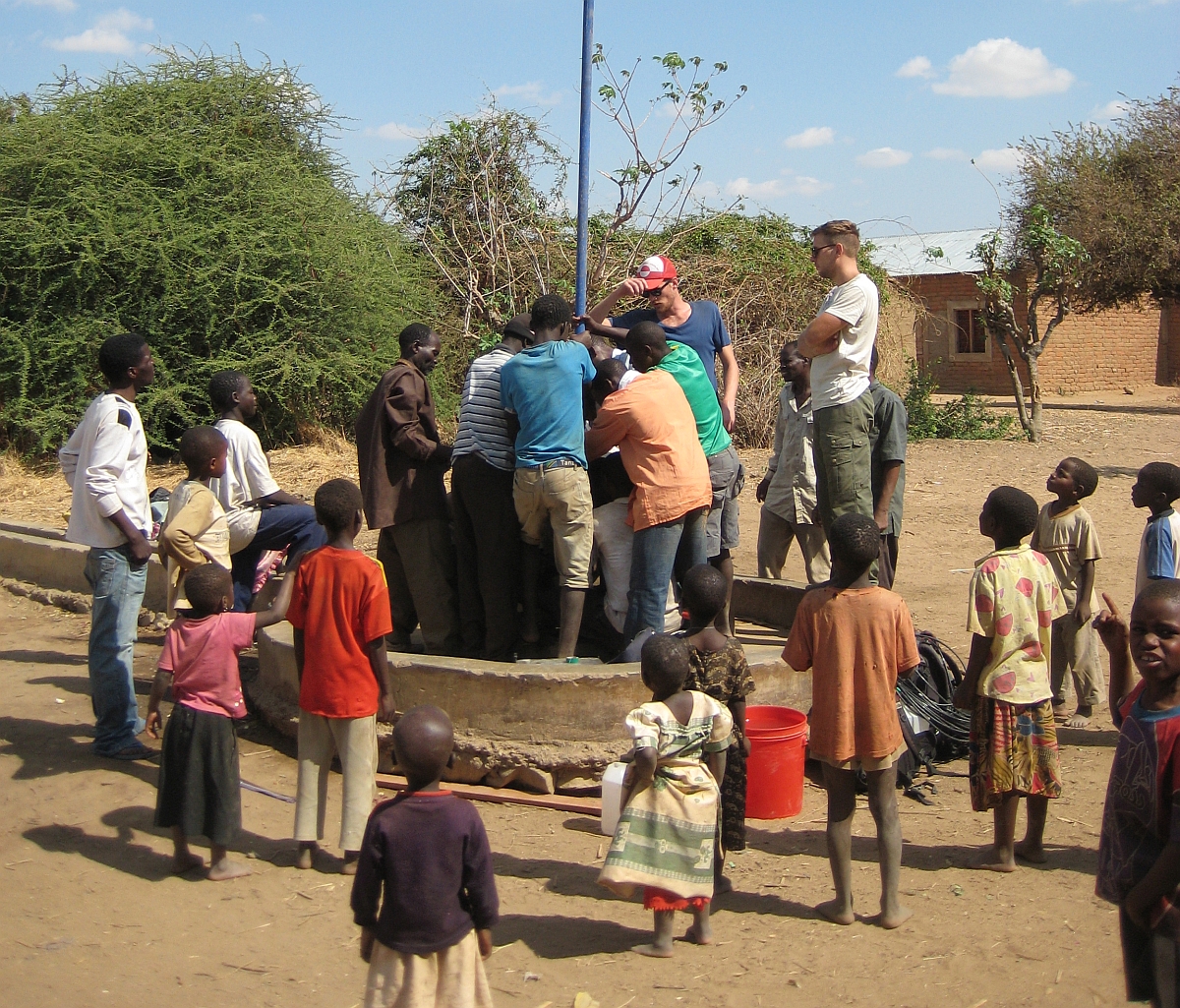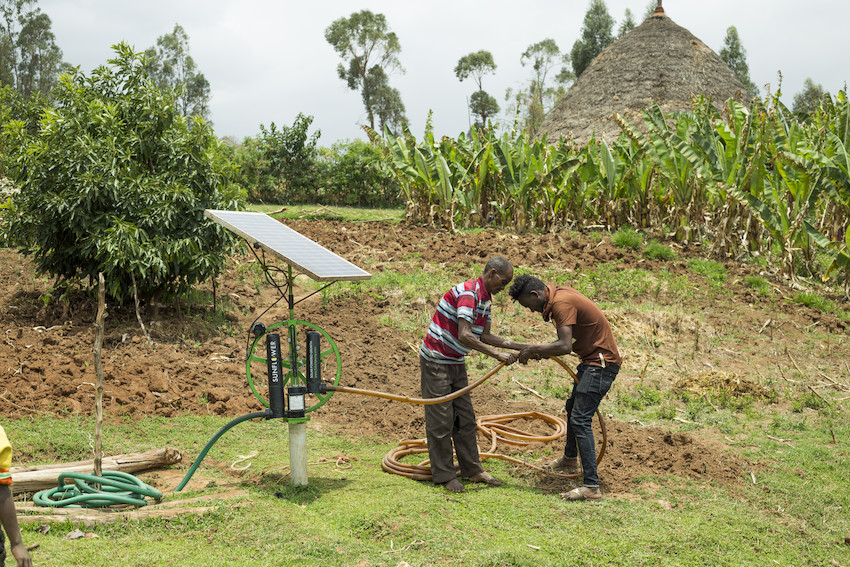By Karen Villholth
Principal Researcher, International Water Management Institute (IWMI)

Across Africa, groundwater, held within soil and rock formations beneath the surface, provides fresh drinking water for around 70 percent of people. With its wide distribution and perennial availability, it is the chosen water supply for most rural communities, and, increasingly, within urban areas. As such, it forms the backbone of water security and climate resilience across the continent.
When it comes to providing access to safe and secure water and sanitation, Africa lags behind other continents. Expanding water security and achieving Sustainable Development Goal 6 (SDG 6) hinge on using this groundwater resource – and doing so wisely. Experience shows that providing long-lasting access to groundwater depends on understanding the resource, and bringing in the best-available hardware for extracting it from access points, such as wells and springs. On top of that, effective management of groundwater, as well as good management and maintenance of the infrastructure, is crucial. Recognizing the importance of groundwater, the African Ministers’ Council on Water (AMCOW), the continent’s main body for water affairs, recently launched its Pan-African Groundwater Program (APAGroP). This presents, for the first time, a ‘resource-to-tap’ vision for supporting Member States to achieve a better water future.
The 20th African Water Association Congress, taking place in Kampala, Uganda, 24-27 February, is set to bring this vision to fruition. The largest Water, Sanitation and Hygiene (WASH) forum on the continent, hosting more than 2000 delegates and exhibitors, the event unites members of the WASH sector with those from the groundwater research and management community. APAGroP will be showcased at the Congress, and inputs invited from WASH and groundwater experts, AMCOW Member States, the private sector, and initiatives such as the Groundwater Solutions Initiative for Policy and Practice, the Groundwater for Resilience Network (GRAN), and the research program Unlocking the Potential of Groundwater for the Poor (UpGRO). Drawing on such a diverse group of experts and practitioners will ensure that, as the program takes shape, it retains a strong focus on resource assessment and management, while upholding the needs of WASH.

The APAGroP was officially launched at an Experts’ and Stakeholders’ Workshop in Nairobi in October 2019, following more than a decade of high-level discussions. It is unique in that it calls on world-renowned water researchers to distill and adapt information products, tools and policies for sustainable groundwater development, while working closely with Member States to co-identify and fill learning gaps, and share lessons through a continent-wide knowledge exchange platform.
Strengthening commitment and coalitions on the continent across different scales and levels, spanning policy and research, and encompassing the WASH and resource sectors, can only enhance prospects for meeting SDG 6. And since groundwater is closely linked to several other UN goals – around food security (SDG 2), sustainable cities (SDG 11), climate adaptation (SDG 13) and environmental protection (SDG 15) – its inclusion in continent-wide strategies has potential to help keep Africa’s broader development on a sustainable footing.
Watch the video interview of Paul Orengoh, AMCOW Program Director, on the APAGroP, as expressed during the 20th AfWA Congress’

